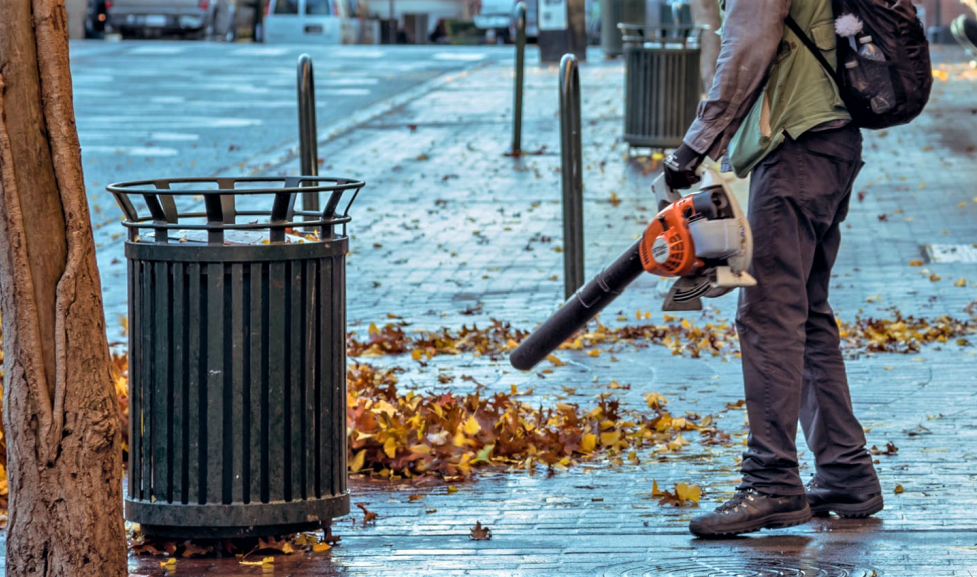Background
For much of the year, commercial landscaping companies provide a variety of lawn and plant care services to residents and commercial businesses. While these services are an important part of the local economy, they are also a source of routine concern among community members.
Certain types of landscaping equipment present a variety of environmental and health concerns. These include greenhouse gas (GHG) emissions, noise and air pollution.
Two-stroke engines, such as those commonly found in leaf blowers, are the most cited area of concern. These small, fossil fuel-powered engines release higher amounts of toxic chemicals and dust into the air, contributing to severe respiratory conditions and other health issues. They are also a source of GHG emissions that must be reduced to achieve the community’s climate goals.
Project Update
In late 2024, City Council deferred taking a regulatory approach to address the impacts of gas-powered leaf blowers and other landscaping tools for at least the next year. This decision came after city officials recommended against new regulations, citing several years of examining the environmental and noise pollution caused by these devices. The key reasons for not pursuing full electric equipment mandates included the high costs of electric alternatives, the limited availability of such equipment, and equity concerns.
Council supported staff’s recommendations to continue encouraging the voluntary transition away from gas-powered equipment through education and incentive programs, with the potential for future regulation. While the council remains interested in restricting the use of gas-powered equipment, they acknowledged that current conditions prevent immediate regulation. Although electric equipment continues to improve, costs remain high, and production is not keeping pace with market demand. The city partnered with Boulder County to help small landscaping companies switch to electric tools to aid this transition.


